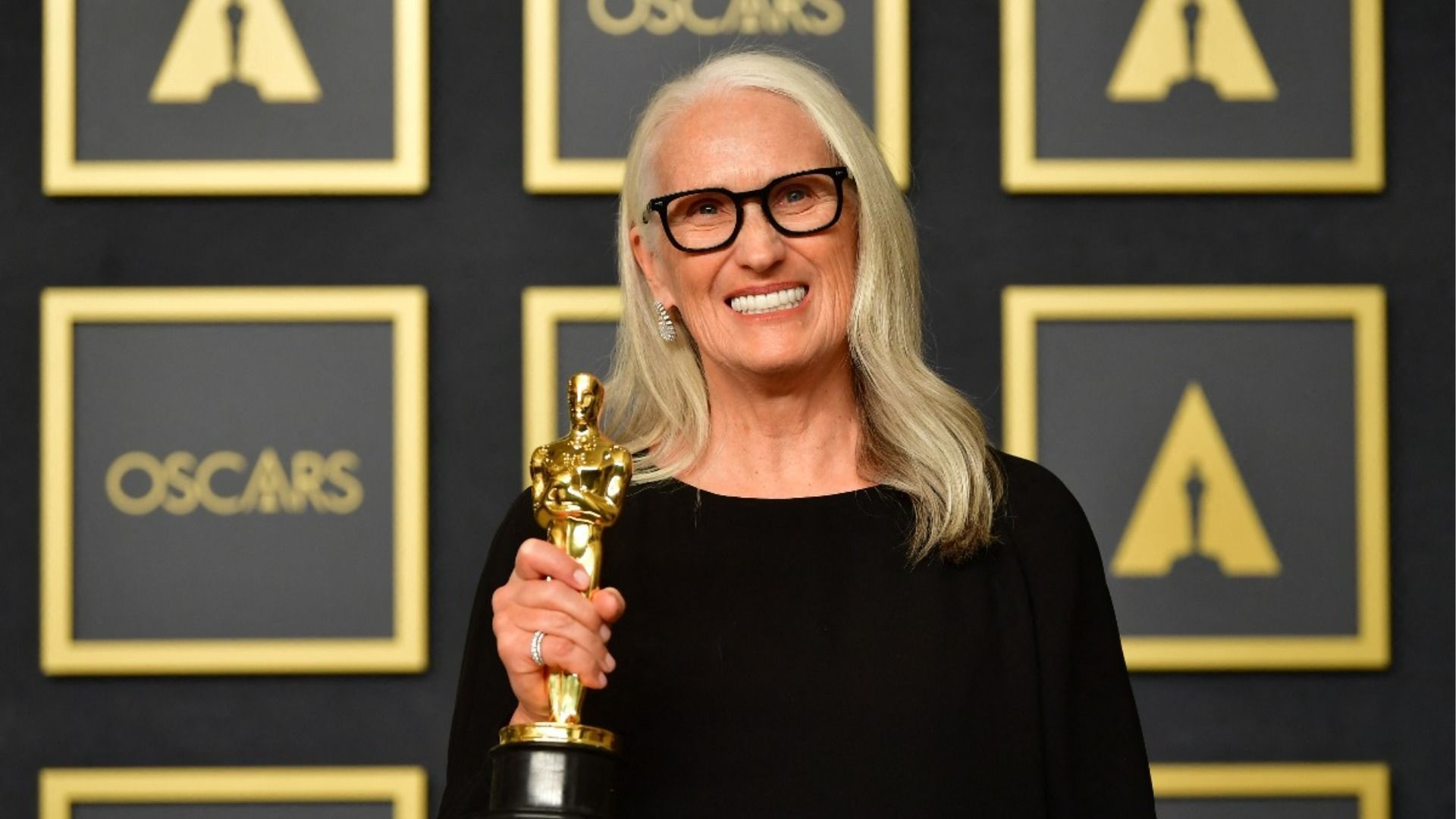Unveiling The Visionaries: The Crucial Role Of Directors In Shaping The Academy Awards
The Academy Awards, often referred to as the Oscars, stand as one of the most prestigious events in the cinematic world, celebrating excellence in filmmaking. At the heart of this celebration lies the recognition of directors, the masterminds who breathe life into stories on the big screen. Their influence is profound, shaping not only the films we cherish but also the direction of the entire industry. This article delves into the significance of directors in the Academy Awards, exploring their contributions, the evolution of their craft, and the notable winners who have left an indelible mark on cinema history.
Directors are the linchpins in the filmmaking process. They interpret scripts, collaborate with writers and producers, guide actors' performances, and work closely with cinematographers, production designers, and editors to create a cohesive visual narrative. Their ability to transform a written script into a cinematic masterpiece is nothing short of extraordinary. The Academy Awards recognize this artistry, honoring directors who push the boundaries of creativity and innovation. By understanding the role of directors in the Oscars, we gain a deeper appreciation for the dedication and skill required in filmmaking.
| Name | Guillermo del Toro |
|---|---|
| Date of Birth | October 9, 1964 |
| Nationality | Mexican |
| Notable Works | Pan's Labyrinth, The Shape of Water, Crimson Peak |
| Career | Filmmaker, Screenwriter, Producer |
| Professional Information | Winner of the Academy Award for Best Director (2018) for The Shape of Water |
| Reference | Official Academy Awards Website |
Guillermo del Toro, a name synonymous with visionary storytelling, exemplifies the impact a director can have on the film industry. Born on October 9, 1964, in Mexico, del Toro has crafted a unique style that blends fantasy with reality, creating films that are both visually stunning and emotionally resonant. His work, such as "Pan's Labyrinth" and "The Shape of Water," showcases his ability to weave intricate narratives that challenge societal norms and explore the human condition. Del Toro's recognition at the Academy Awards underscores the importance of diverse voices in filmmaking and highlights the global influence of cinema.
The history of the Academy Awards is rich with milestones that reflect the ever-changing landscape of cinema. Since its inception in 1929, the Oscars have grown to encompass a wide array of categories, acknowledging the multifaceted nature of filmmaking. The introduction of the Best Director category in the same year marked a pivotal moment, recognizing the central role directors play in shaping a film's success. Over the decades, the Academy has expanded its categories to include various aspects of filmmaking, ensuring that all contributors receive due recognition. Additionally, there has been a significant shift towards increased representation of diverse filmmakers and stories, reflecting a broader societal push for inclusivity.
The criteria for winning the Oscar for Best Director are rigorous, reflecting the high standards set by the Academy. Directors are evaluated based on their artistic merit, originality, vision, and execution of the script. Their ability to collaborate effectively with the cast and crew, as well as the overall impact of the film on audiences and critics, plays a crucial role in the decision-making process. Notable winners, such as Steven Spielberg, Martin Scorsese, and Kathryn Bigelow, have set benchmarks in the industry, inspiring future generations of filmmakers. Spielberg's innovative techniques and storytelling prowess, Scorsese's mastery in depicting complex narratives, and Bigelow's trailblazing efforts in challenging gender norms have left an indelible mark on cinema.
Directors, however, face numerous challenges in bringing their visions to life. Budget constraints often limit creative possibilities, forcing directors to make difficult decisions that may compromise the quality of their work. Time pressures add another layer of complexity, as tight schedules can hinder the meticulous attention to detail required in filmmaking. Managing the diverse personalities within the cast and crew demands exceptional leadership skills, while navigating industry politics and securing distribution deals requires strategic acumen. Despite these challenges, directors continue to push boundaries, creating films that captivate audiences worldwide.
- A Discovery Of Witches Blood Rage The Killer Unveiled
- Rich Porter Net Worth Facts Insights You Need To Know
The evolution of directing has been influenced by technological advancements and societal changes. The rise of digital filmmaking has revolutionized the creative process, offering directors new tools and techniques to enhance their storytelling. Greater emphasis on inclusivity and representation in film has led to a more diverse array of voices being heard, enriching the cinematic landscape. The integration of technology, such as computer-generated imagery (CGI), has expanded the possibilities for visual storytelling, allowing directors to create worlds that were once unimaginable. This evolution reflects the dynamic nature of the film industry, constantly adapting to meet the demands of an ever-changing world.
Looking to the future, the role of directors in the Academy Awards promises to be even more significant. As the industry continues to embrace diversity, we can expect increased recognition of filmmakers from underrepresented communities. Innovative storytelling techniques will challenge traditional norms, pushing the boundaries of what cinema can achieve. The focus on social issues and impactful narratives will remain paramount, as films continue to serve as powerful tools for social change. Directors will play a crucial role in shaping this future, using their artistry to inspire and provoke thought, much like their predecessors who have paved the way.
The impact of directors on society extends beyond the films they create. Their work influences culture, sparking conversations and shaping perceptions. Through their narratives, directors address pressing issues, offering audiences a lens through which to view the world. The Academy Awards, by recognizing these contributions, amplifies their reach, ensuring that their voices are heard on a global stage. As we celebrate the achievements of directors in the Oscars, we also acknowledge the broader implications of their work, recognizing the power of cinema to transcend boundaries and unite humanity.
In the realm of contemporary cinema, the interplay between directors and the industry's evolving trends is evident. The rise of streaming platforms has democratized access to films, providing directors with new avenues to showcase their work. This shift has led to a proliferation of content, allowing audiences to explore a wider array of stories. Directors like Guillermo del Toro have embraced this change, using platforms such as Netflix to reach broader audiences with films like "Nightmare Alley." The symbiotic relationship between directors and the industry continues to evolve, shaping the future of cinema.
The influence of directors extends beyond the Oscars, impacting the careers of actors, writers, and other creatives they collaborate with. Iconic directors such as Spielberg and Scorsese have launched the careers of numerous actors, giving them the opportunity to showcase their talents on a global stage. Their mentorship and guidance have inspired countless individuals, fostering a culture of excellence and innovation in the industry. The connections between directors and other celebrities highlight the collaborative nature of filmmaking, emphasizing the importance of teamwork in creating successful films.
As the film industry continues to grow and change, the role of directors in the Academy Awards remains central. Their contributions shape the narratives we cherish, influencing culture and society in profound ways. By recognizing their achievements, the Oscars celebrate the artistry and dedication that go into filmmaking. The future of directing in the Academy Awards promises to be exciting, with diverse voices and innovative techniques driving the industry forward. As we look ahead, we can expect directors to continue pushing boundaries, creating films that inspire and provoke thought, leaving an enduring legacy in the world of cinema.



Detail Author:
- Name : Eulah Witting
- Username : maiya76
- Email : freichert@hotmail.com
- Birthdate : 2002-01-15
- Address : 809 Judd Fork Apt. 139 East Abdullah, NC 72289
- Phone : 1-248-503-9000
- Company : Runolfsson Ltd
- Job : Tractor Operator
- Bio : Aperiam et ullam quia unde. Non eveniet libero dolores nulla. Enim laborum dolorem aut et sunt quis laborum non.
Socials
instagram:
- url : https://instagram.com/mhartmann
- username : mhartmann
- bio : Sed aut culpa quo accusantium aut. Ex ab quaerat perferendis ex dolores et.
- followers : 4424
- following : 1906
twitter:
- url : https://twitter.com/mhartmann
- username : mhartmann
- bio : Qui sapiente exercitationem itaque officia voluptatem dolore. Harum consequatur sint est excepturi. Cupiditate enim quidem quibusdam.
- followers : 6073
- following : 453
facebook:
- url : https://facebook.com/marjory_xx
- username : marjory_xx
- bio : Rerum consequatur ad quia omnis adipisci repellendus non.
- followers : 4000
- following : 111
linkedin:
- url : https://linkedin.com/in/mhartmann
- username : mhartmann
- bio : Sunt voluptatem exercitationem repellat quam.
- followers : 5040
- following : 2492